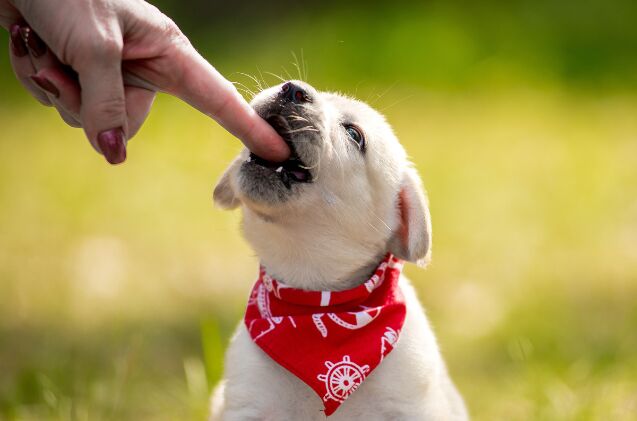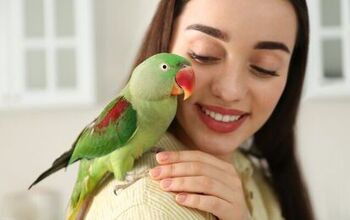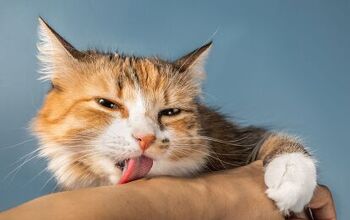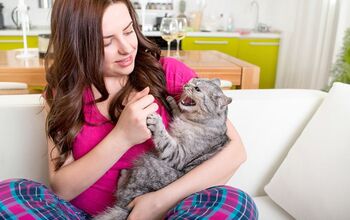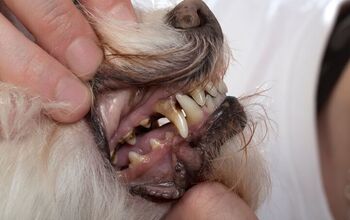Why Is My Puppy Biting Me?

Bringing home a new puppy is always an exciting experience – prepare yourself for tons of adorable moments and endless cuddles! But it can also be a bit of an overwhelming period, especially when your cute furry friend starts nipping at your hands, feet, or pant legs. This behavior is not as uncommon as you’d think, and it can be a bit frustrating – even painful. However, before you let the frustration get the best of you, you need to understand why puppies engage in such behavior in the first place.
Why Is My Puppy Biting Me?
All dogs are one of a kind and have their own personalities, and that starts while they’re still puppies. From behaviors that are unique to them to those influenced by their breed, there are a lot of factors that could play a role in the emergence of unwanted behaviors, such as biting and nipping. Here are some of the most common reasons why your puppy is biting you – by understanding the underlying reasons, you can take proactive steps to redirect this behavior in a positive direction.
- Natural Instincts
For a puppy, who’s just started understanding the world around them, exploration is everything. But puppies explore the world with their mouths, much like human babies use their hands. Biting is a normal part of their development and an important way for them to learn about their environment, socialize, and establish boundaries.
- Teething
Another common reason for puppy biting is teething. Just like human babies, puppies go through a teething phase where their baby teeth are replaced by adult teeth. This process can be uncomfortable and painful, leading them to find relief by chewing on anything they can sink their teeth into, including your hands. Providing appropriate chew toys and discouraging biting on inappropriate objects can help alleviate teething discomfort and reduce unwanted nipping. Fail to do so, and you might see your favorite chair and table legs chewed to bits! Simple chew toy designs such as this one are a great way to divert their attention from your prized possessions. This particular toy is designed specifically for puppies in the teething stage – it is flavored to entice them and can be frozen to provide a cooling effect and much-needed pain relief for their inflamed gums.
- Lack of Exercise
Sometimes, biting is a result of simple boredom. Puppies, particularly high-energy breeds, require plenty of physical and mental stimulation. If your puppy is not getting enough exercise or mental enrichment, they may become bored or frustrated, leading to excessive biting as a means of releasing all that pent-up energy. Ensure your puppy gets regular exercise, playtime, and mental challenges to keep them engaged and prevent boredom-related biting. Try a simple puzzle toy, like this one by the famed Nina Ottosson. It can keep your pet occupied for a long time and is available at varying difficulty levels so you choose according to your puppy’s needs and preferences for a tailored experience.
What Can You Do to Keep Puppy Biting at Bay?
Now that you understand why your puppy bites, you can try tackling the issue and eliminating it altogether. To do that, you have several options. Firstly, of course, you have to commit to training. Don’t overlook training, and stick by it once you start. Consistency is key when it comes to training your puppy. Establishing clear rules and boundaries early on will help your puppy understand what is acceptable behavior. When your puppy starts biting, redirect their attention to appropriate toys or activities.
Also, you should not forget to stick to positive reinforcement methods. Positive reinforcement is a powerful tool in training your puppy. When your puppy exhibits desirable behavior, such as not biting, reward them with praise, treats, or a favorite toy. Positive reinforcement helps them associate good behavior with positive outcomes and encourages them to repeat the behavior in the future. Simple and so efficient!
Of course, sometimes nothing you do will work, and biting can continue despite your best efforts. If you find yourself struggling to curb your puppy's biting behavior, seeking professional guidance from a qualified dog trainer or behaviorist can be a real lifesaver. They can assess your puppy's behavior, identify underlying issues, and provide you with tailored advice and training techniques to address the problem effectively. Don’t be afraid to seek help from a professional!

A proud mama to seven dogs and ten cats, Angela spends her days writing for her fellow pet parents and pampering her furballs, all of whom are rescues. When she's not gushing over her adorable cats or playing with her dogs, she can be found curled up with a good fantasy book.
More by Angela Vuckovic



